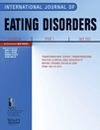
INTERNATIONAL JOURNAL OF EATING DISORDERS
Scope & Guideline
Fostering innovation in psychiatry through dedicated eating disorder research.
Introduction
Aims and Scopes
- Investigation of Psychological Mechanisms:
The journal emphasizes the exploration of psychological factors contributing to eating disorders, such as body image disturbance, perfectionism, and emotional regulation. - Clinical Treatment and Outcomes:
Research on the efficacy of various treatment modalities for eating disorders, including cognitive-behavioral therapy, family-based treatment, and innovative therapeutic approaches, is a core focus. - Epidemiological Studies:
The journal publishes studies assessing the prevalence and incidence of eating disorders across different populations, contributing to a better understanding of risk factors and demographic variations. - Cultural and Societal Influences:
There is a consistent emphasis on the impact of cultural norms, societal pressures, and media influences on the development of eating disorders, highlighting the need for culturally sensitive interventions. - Comorbidity and Associated Health Risks:
The journal explores the relationship between eating disorders and other mental health conditions, as well as physical health complications, providing a holistic view of the impact of these disorders. - Innovative Research Methodologies:
A commitment to utilizing advanced research methodologies, including machine learning, ecological momentary assessment, and network analysis, to deepen the understanding of eating disorders.
Trending and Emerging
- Digital Interventions and Telehealth:
The rise of digital mental health interventions, including teletherapy and mobile apps for eating disorders, is a significant trend, especially in light of the COVID-19 pandemic, which has prompted a shift towards remote care. - Intersectionality in Eating Disorders:
There is an increasing focus on how intersecting identities, such as gender, race, and sexual orientation, impact the experience and treatment of eating disorders, highlighting the need for inclusive research. - Mindfulness and Acceptance-Based Therapies:
Emerging interest in mindfulness and acceptance-based approaches to treating eating disorders signifies a shift towards strategies that promote emotional regulation and self-acceptance. - Neuroscientific Research:
An uptick in studies utilizing neuroimaging and physiological assessments to explore the biological underpinnings of eating disorders marks a growing trend towards integrating neuroscience with psychological research. - Parent and Family Involvement in Treatment:
Research increasingly emphasizes the role of family dynamics and parental involvement in the treatment of eating disorders, indicating a shift towards family-centered care models. - Focus on Comorbid Conditions:
The examination of comorbid mental health conditions, such as anxiety and depression, alongside eating disorders is becoming more prevalent, underscoring the complexity of treatment needs.
Declining or Waning
- Traditional Dietary Interventions:
Research focused solely on traditional dietary interventions for eating disorders appears to be waning, as the field moves towards more holistic and integrative approaches that consider psychological, social, and emotional factors. - Single-Dimensional Risk Factors:
Studies that only examine single-dimensional risk factors for eating disorders, without considering the interplay of biological, psychological, and social dimensions, are becoming less prevalent. - Generalized Treatment Approaches:
There is a noticeable decline in the publication of studies advocating for generalized treatment approaches that do not consider individual differences, as personalized and tailored interventions gain traction. - Focus on Weight as a Sole Indicator:
The emphasis on weight as the primary indicator of eating disorder severity is decreasing, with a growing recognition of the importance of psychological and emotional aspects in understanding these disorders.
Similar Journals

Journal of Obesity
Exploring the complexities of obesity and its impacts.The Journal of Obesity, published by HINDAWI LTD, stands at the forefront of research in the field of Endocrinology, Diabetes and Metabolism, providing a vital platform for the dissemination of knowledge and advancements in obesity research. With an impact factor that reflects its significance in the academic community—holding a prestigious Q2 ranking in its category—the journal has continuously evolved since its establishment as an Open Access publication in 2010, promoting unrestricted access to high-quality research. Operating from Egypt, the journal focuses on disseminating impactful studies that address the global epidemic of obesity, making a meaningful contribution to public health solutions. Researchers, professionals, and students in the related fields will find valuable insights and innovative findings within its pages, as the journal endeavors to bridge the gap between scientific research and practical application. As of 2023, it occupies a notable position, ranked #58 out of 244 in Scopus, showcasing its commitment to excellence and relevance in the rapidly evolving landscape of obesity research.

ACTA PSYCHIATRICA SCANDINAVICA
Exploring Groundbreaking Insights in PsychiatryACTA PSYCHIATRICA SCANDINAVICA is a leading journal in the field of Psychiatry and Mental Health, published by Wiley since its inception in 1926. With a strong commitment to advancing psychiatric research, this esteemed journal boasts an impressive impact factor and ranks within the top 7% of its category, reflecting its influence and relevance in the field. Operating without an Open Access model, the journal serves as a vital resource for professionals, researchers, and students keen on accessing high-quality, peer-reviewed studies focused on mental health issues. The scope of ACTA PSYCHIATRICA SCANDINAVICA spans a broad spectrum of psychiatric topics, providing a platform for groundbreaking research and clinical practice insights. Based in the United Kingdom and featuring contributions from experts worldwide, the journal continues to shape the future of psychiatric research through its rigorous publication standards and commitment to scholarly excellence.
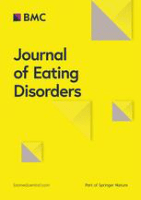
Journal of Eating Disorders
Exploring the complexities of eating disorders.Journal of Eating Disorders, published by BMC, is a leading Open Access journal dedicated to advancing knowledge and understanding of eating disorders. With an ISSN of 2050-2974, it has been a valuable resource for researchers and practitioners since its inception in 2013. This journal resides in the prestigious United Kingdom and provides a platform for high-quality research, encompassing areas such as behavioral neuroscience, nutrition and dietetics, as well as psychiatry and mental health. Notably, it achieved an impressive Q1 ranking in Nutrition and Dietetics and holds a Q2 classification in both Behavioral Neuroscience and Psychiatry and Mental Health for the year 2023. With a robust Scopus ranking, including a 67th percentile in Psychiatry and Mental Health, the journal is committed to facilitating vital discourse and disseminating groundbreaking findings that cater to both academic and clinical settings. The wide-reaching impact of the research published within its pages makes it an essential tool for professionals, students, and anyone with an interest in understanding and addressing eating disorders.
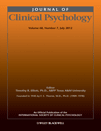
JOURNAL OF CLINICAL PSYCHOLOGY
Leading the Charge in Clinical Psychology AdvancementsThe JOURNAL OF CLINICAL PSYCHOLOGY, published by Wiley, has been a pivotal resource in the field of psychological research since its inception in 1945. With an impressive impact factor and classification within the Q1 category for both Arts and Humanities and Clinical Psychology, it ranks prominently at #54/552 in Arts and Humanities and #71/311 in Clinical Psychology according to Scopus, placing it in the top percentiles for both categories. The journal primarily serves as a platform for disseminating groundbreaking research, theoretical advancements, and practical applications pertinent to clinical psychology, making it indispensable for researchers, clinicians, and scholars dedicated to enhancing mental health practices. Although not an open-access journal, it provides critical insights and methodologies that are fundamental for professionals navigating the complexities of clinical psychology today. With a commitment to advancing understanding and treatment of psychological disorders, the journal continues to shape outcomes in mental health and therapeutic practices.
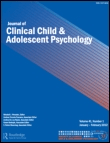
JOURNAL OF CLINICAL CHILD AND ADOLESCENT PSYCHOLOGY
Shaping the future of mental health through rigorous scholarship.JOURNAL OF CLINICAL CHILD AND ADOLESCENT PSYCHOLOGY, published by Routledge Journals, Taylor & Francis LTD, is a premier, peer-reviewed academic journal dedicated to the fields of clinical psychology, developmental, and educational psychology. With an impressive impact factor reflecting its esteemed reputation, this journal is currently ranked Q1 in both Clinical Psychology and Developmental and Educational Psychology categories, showcasing its significant contribution to the advancement of knowledge in these disciplines. Covering a convergence period from 1999 to 2024, it serves as a vital resource for researchers and practitioners seeking to explore innovative interventions, evidence-based practices, and developmental theories relevant to children and adolescents. Accessible from the United States and adhering to rigorous academic standards, this journal invites contributions that facilitate understanding and improvement of psychological health in youth, making it an indispensable tool for professionals dedicated to shaping the future of mental health.

JOURNAL OF PSYCHIATRIC RESEARCH
Transforming Psychiatric Insights into Clinical PracticeJournal of Psychiatric Research, published by Pergamon-Elsevier Science Ltd, is a premier academic journal dedicated to advancing our understanding of psychiatric disorders and mental health. With its ISSN 0022-3956 and E-ISSN 1879-1379, the journal has established a significant presence in the field, reflected in its impressive Q1 ranking in both Biological Psychiatry and Psychiatry and Mental Health as of 2023. Nestled in the heart of the United Kingdom, the journal has been fostering scholarly discourse since its inception in 1961, with publication horizons extending to 2024. As an authoritative source of empirical research, the journal attracts a global readership, providing vital insights that inform clinical practices and policies. It holds a respectable rank of #103 out of 567 in Medicine and Psychiatry and Mental Health, with an 81st percentile ranking, underscoring its influence in shaping psychiatric research. Although it does not offer open access, the journal is dedicated to disseminating critical knowledge that enables researchers, clinicians, and students to address the complexities of mental health challenges effectively. For those engaged in psychiatric studies, the Journal of Psychiatric Research remains an indispensable resource.

SUBSTANCE USE & MISUSE
Unraveling the intricacies of substance use to inform policy and practice.SUBSTANCE USE & MISUSE, published by Taylor & Francis Inc, is an esteemed academic journal dedicated to the multifaceted study of substance use and its implications on health and society. With a notable impact factor and categorized in the Q2 quartile across multiple fields—including Health (Social Science), Medicine (Miscellaneous), Psychiatry and Mental Health, as well as Public Health—this journal serves as an essential platform for researchers, professionals, and students alike. Spanning from 1966 to 2024, it provides a rich archive of peer-reviewed articles that explore current trends, innovative research, and evidence-based practices in the management and understanding of substance use. The journal offers various access options, catering to the diverse needs of its audience and affirming its commitment to fostering scholarly discourse in the United Kingdom and beyond. By engaging with this journal, readers can enhance their understanding of the complexities surrounding substance use, making it a crucial resource for advancing knowledge and informing policy in this critical area of public health.
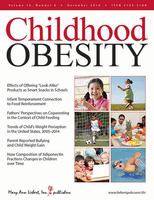
Childhood Obesity
Fostering collaboration for impactful health strategies.Childhood Obesity is a leading peer-reviewed academic journal published by Mary Ann Liebert, Inc., dedicated to the critical examination of obesity issues affecting children and adolescents. Covering a range of interdisciplinary research within Endocrinology, Diabetes, and Metabolism, Nutrition and Dietetics, and Pediatrics, the journal holds prestigious rankings across multiple categories, including Q1 in Pediatrics, Perinatology, and Child Health, showcasing its impact and quality in the field. With its focus on innovative research and practical solutions, Childhood Obesity invites contributions that advance understanding and strategies for combating childhood obesity, making it an invaluable resource for researchers, healthcare professionals, and students alike. Published from 2010 to 2024, the journal remains committed to enhancing public health knowledge and practices through high-quality, evidence-based studies.
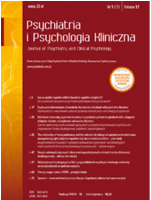
Psychiatria i Psychologia Kliniczna-JOURNAL OF PSYCHIATRY AND CLINICAL PSYCHOLOGY
Exploring innovative solutions in psychiatry and clinical psychology.Psychiatria i Psychologia Kliniczna - Journal of Psychiatry and Clinical Psychology is a vital platform for advancing the fields of psychiatry and clinical psychology, published by Medical Communications in Poland. With its ISSN 1644-6313, this Open Access journal has been providing unrestricted access to impactful research since 2005, ensuring that findings in mental health are both accessible and disseminated widely. Although currently ranked in the Q4 quartile across Clinical Psychology and Psychiatry and Mental Health categories, and with the Scopus ranks placing it at 262/311 in Clinical Psychology and 493/567 in Psychiatry, the journal serves as a crucial resource for researchers seeking to explore innovative methodologies and therapeutic interventions. The journal's aim is to enhance understanding and treatment of psychiatric disorders by facilitating the exchange of knowledge between academia and clinical practice. As it converges from 2006 to 2024, Psychiatria i Psychologia Kliniczna remains committed to publishing high-quality articles that contribute toward the evolving landscape of mental health research.

PSYCHOLOGY OF ADDICTIVE BEHAVIORS
Pioneering Research on the Psychology of AddictionPsychology of Addictive Behaviors, published by the Educational Publishing Foundation of the American Psychological Association, is a distinguished peer-reviewed journal dedicated to advancing the understanding of addiction through rigorous psychological research. With an impressive impact factor and a reputation for excellence, this journal holds a prestigious Q1 quartile ranking in Clinical Psychology, Medicine (miscellaneous), and Psychiatry and Mental Health as of 2023. Since its inception in 1993, it has provided a vital platform for the dissemination of high-quality studies, fostering collaboration and knowledge exchange amidst researchers, clinicians, and students in the mental health arena. The journal is particularly noted for its comprehensive coverage of diverse topics related to addictive behaviors, thereby contributing significantly to the field's evidence base and clinical practices. Although currently not open access, its commitment to scholarly excellence ensures that subscribers benefit from invaluable insights into the complexities of addiction. With the culmination of research spanning from 1993 to 2024, Psychology of Addictive Behaviors stands as a cornerstone for those striving to understand and combat the challenges of addiction.